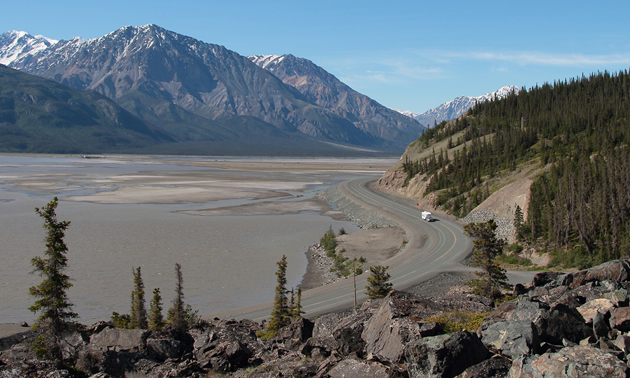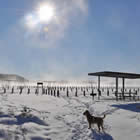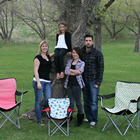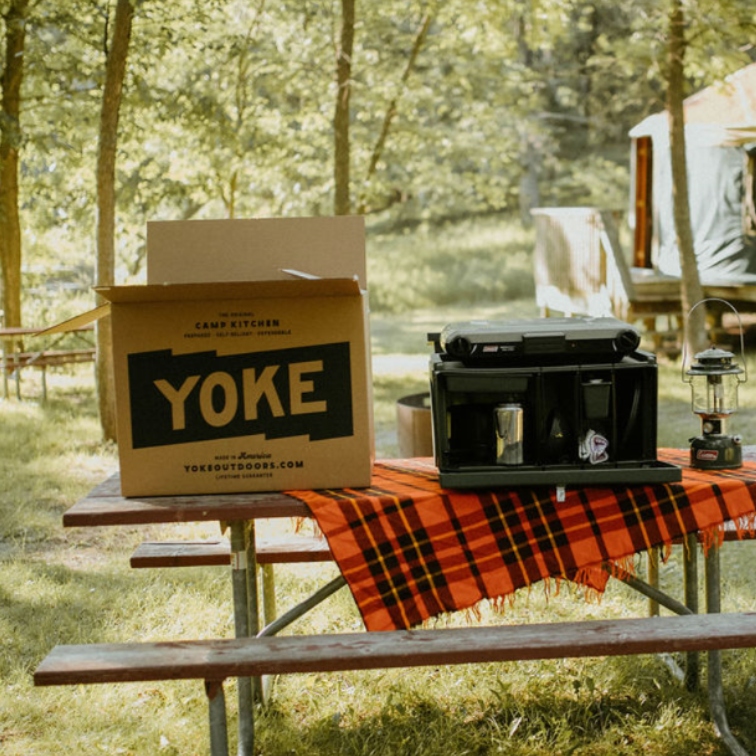Living the northern dream
So enamoured of Yukon were RVers Sue and Steve Thomas that they decided to make it their permanent home

Dreams of retiring in Yukon are finally coming true for Sue and Steve Thomas. The couple have been enamoured of the North ever since September 1993, when they first started taking trips from Vancouver Island, B.C., to Yukon and Alaska. Twenty years later, they have escaped the busy Island to live 60 kilometres outside of Whitehorse, Yukon.
Sue, 54, was born in Whitehorse, Yukon, but she and her family moved to Calgary, Alberta, when she was in her early teens. Steve, who is 50 years old, grew up in Victoria, B.C., and had never been to Yukon or Alaska. On their first grand camping adventure in ‘93, he too fell in love with the North.
The allure of Yukon and Alaska brought the Thomases back many times. Over the last 20 years, they’ve driven every highway in Yukon and nearly every highway in Alaska. They’ve also explored many back roads in the North. Sue even started a website to document their adventures. Her site, Sharing my Yukon, receives approximately 1,700 visitors a month and Sue responds to numerous emails from RVers seeking travel advice.
What she tells them
“For people who say it’s their first time coming north, I recommend some traditional circle routes,” said Sue. “I usually recommend people go north on the Alaska Highway on their way up and then when they are heading home, go south on the Cassiar Highway. For some people, this works well because they are going south in late August or late September and there is good bear watching in the Stewart, B.C., and Hyder, Alaska, area during the salmon run. Plus, the Cassiar is usually better repaired later in the season than it is earlier in the season.”
Sue said some RVers she speaks with are apprehensive to travel the Alaska Highway or the Cassiar Highway because of what they’ve heard—but they can see what it’s really like by visiting her website.
“The Cassiar Highway has been greatly improved,” said Sue, “and is a wonderful drive. So many people fear what they don’t know, and so on my website, I have a lot of pictures of the highway. I take pictures as my husband drives, so what you see on my website is the real deal.”
Top of the World Highway is another route that strikes fear into the hearts of some RVers, but the Thomases have travelled the route many times without incident.
“It has had some issues in the past few years with washouts, major reconstruction and closures, but we love the route,” said Sue. “We drive it every year we can. People need to realize it’s not a route you are going to make time on. You need to slow down and enjoy the road. It is gravel and it can be rough, but the scenery is amazing—it is a once-in-a-lifetime experience.”
It’s wise to have a plan when you’re travelling, but Sue said that RVers will have a more enjoyable experience travelling through Yukon and Alaska if they can be flexible with their schedule.
“I always recommend people just go with the flow, be willing to adapt and take the time to meet locals and talk with people,” she said.
Positive experiences
People living in the North are friendly and willing to accommodate travellers—the Thomases experienced this first-hand while they were on a trip in December 1998. They were heading back from Beaver Creek and stopped at a lodge near Pink Mountain, B.C. The lodge was closed but Sue could see people living at the lodge, so she knocked on the door and asked if she and Steve could stay the night and plug their motorhome in at the lodge.
“It was New Year’s Eve and the guy said, ‘Ya, by all means. If you’re crazy enough to be on the road, you’re welcome to plug in for free,’ ” said Sue. “And then he invited us in for a moose roast dinner with his family.”
That same trip, the Thomases learned a few lessons about RVing in the wintertime.
“In the motorhome, we encountered -40C. People will say you can’t RV in the winter; well you can—you just plan for it,” said Sue, and later she added, “We learned things like having the propane tank purged with methyl hydrate to remove the moisture from it so it could not freeze in the regulator.”
Of all their RVing adventures, Sue said, their trip to Inuvik in the Northwest Territories in June 1996 was the best. It was Steve’s first time seeing the sun above the horizon at 2 a.m.
“That was an adventure, especially for him,” said Sue.
More adventures to come
Sue is hoping she and Steve can revisit Inuvik this winter. In 2012, they bought an eight-foot truck camper so they can explore more remote, backcountry spots. Their future travel plans include driving the Dempster Highway and the ice road to Tuktoyaktuk.
“I don’t know if we will get it done this year, but if not, then next year,” said Sue.
The couple will get to see a lot more of Yukon in the years to come, because they moved there in 2011.
“We wanted to get ourselves here and set up for retirement,” said Sue. “All of our trips here we learned that it is where our hearts felt at home, and rather than make it our vacation destination, we wanted to make it our real home.”
Selling a lakefront property at Shawnigan Lake on Vancouver Island and moving into a 50-year-old cabin in the middle of the Yukon wilderness does not appeal to everyone—but for this adventurous couple, it is a dream come true.
“We don’t need to do the two-month expeditions anymore,” said Sue. “It has become more of a goal of seeing how remote we can get to enjoy the woods.”








